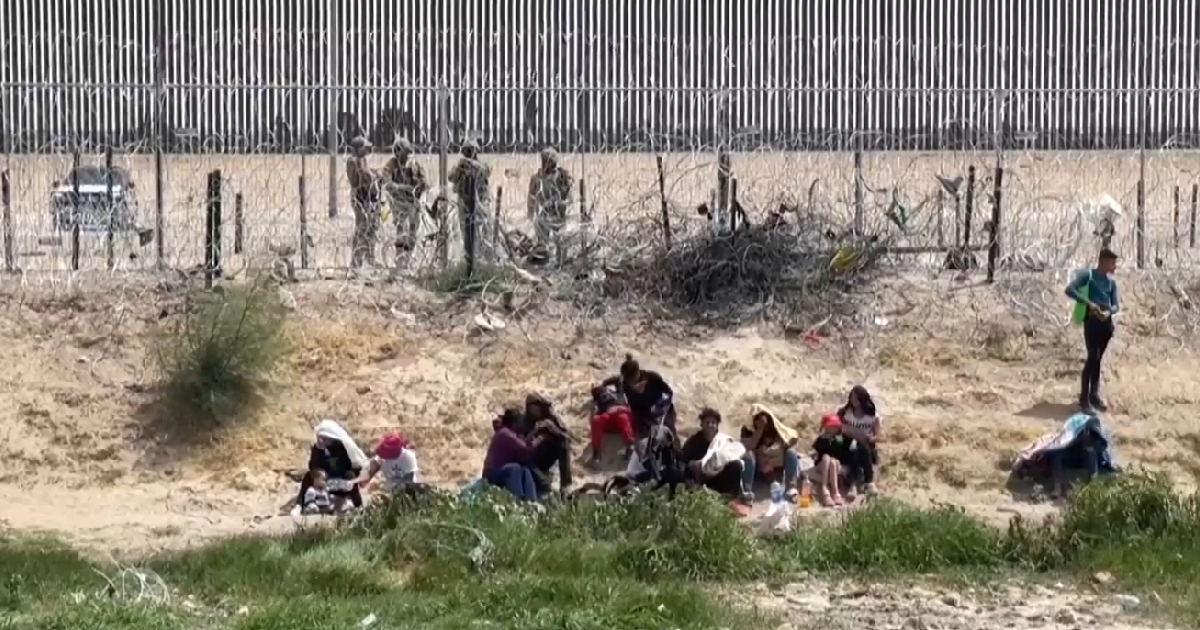The U.S. Immigration and Customs Enforcement (ICE) has unveiled new measures to expand overall enforcement resources, including repatriation flights and detention capacity. These efforts support the Presidential Order announced on June 4, 2024, and the joint Interim Final Rule by the Department of Homeland Security and the Department of Justice, titled "Securing the Border."
According to a statement from ICE, the goal is to significantly streamline the expedited deportation process for individuals who enter the country without a legal basis to remain. One of the initial steps taken by ICE includes optimizing "air charter contracts to ensure the maximum number of repatriation flights can be conducted weekly."
Last year, ICE completed 29 repatriation flights per week, a feat they attribute to "ongoing diplomatic efforts to significantly increase the number of countries to which ICE can regularly deport individuals." The U.S. agency highlighted several countries in South America and the Eastern Hemisphere where repatriations have been successfully carried out.
Additionally, ICE stated that efforts to expand the number of deportation flights continue, with the expectation of adding more flights to the schedule in the coming weeks. This expansion aims to swiftly impose consequences on individuals crossing the southern border illegally while the Presidential Order and its Interim Final Rule are in effect.
ICE also referenced the living conditions in its facilities, noting efforts to "enhance their ability to add detention capacity within the funds provided by Congress." Actions include "adjusting existing contracts for detention centers to increase the number of beds in ICE's detention network and filing a motion to allow the resumption of admissions at the Adelanto ICE Processing Center."
Moreover, ICE is continuously reviewing overall detention capacity and is taking steps to close certain facilities that no longer provide sufficient return on investment. This includes shutting down the South Texas Family Residential Center in Dilley, which is the most expensive facility in the national detention network. By closing this facility, ICE plans to reallocate funds "to increase the overall detention bed capacity across the system by approximately 1,600 beds to better support operational needs." This additional bed space is being sought nationwide and is expected to be available immediately.
On June 4, President Joe Biden signed a series of executive actions preventing irregular migrants from receiving asylum in the United States after illegally crossing the border. The White House stated in an official release that these "actions will remain in effect when high levels of illegal migrant encounters at the Southern Border exceed the capacity to generate timely consequences, as is the case on June 4."
However, President Biden has emphasized that the option to apply for asylum "will remain available" for those seeking to emigrate legally to the United States by scheduling an appointment through the CBP One app for an interview at a port of entry.
Following this announcement, Mexican President Andrés Manuel López Obrador proposed an agreement between the migrants' countries of origin and the United States to address the increase in asylum requests and deportations from the U.S. The Mexican leader aims to prevent the U.S. from returning migrants from Cuba, Venezuela, Haiti, and Nicaragua to Mexico, as announced by President Biden.
Key Questions About U.S. Immigration Measures
In response to the recent updates on U.S. immigration enforcement, several questions have emerged. Below are some frequently asked questions and their answers.
What is the purpose of the new ICE measures?
The new measures aim to streamline the expedited deportation process for individuals lacking legal grounds to stay in the U.S. and to increase overall enforcement resources, including repatriation flights and detention capacity.
How many repatriation flights does ICE conduct weekly?
ICE completed 29 repatriation flights per week last year, thanks to ongoing diplomatic efforts to expand the number of countries accepting deported individuals.
What changes are being made to detention facilities?
ICE is enhancing detention capacity by adjusting existing contracts to increase the number of beds and reallocating funds from closing certain facilities to expand overall bed capacity by approximately 1,600 beds.
Is asylum still available for migrants?
Yes, asylum is still available for those seeking to emigrate legally to the U.S. by scheduling an appointment through the CBP One app for an interview at a port of entry.
